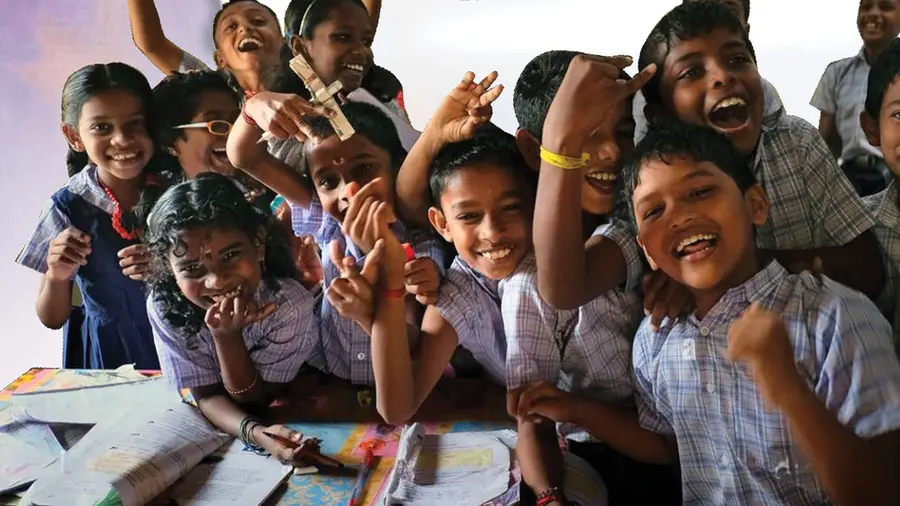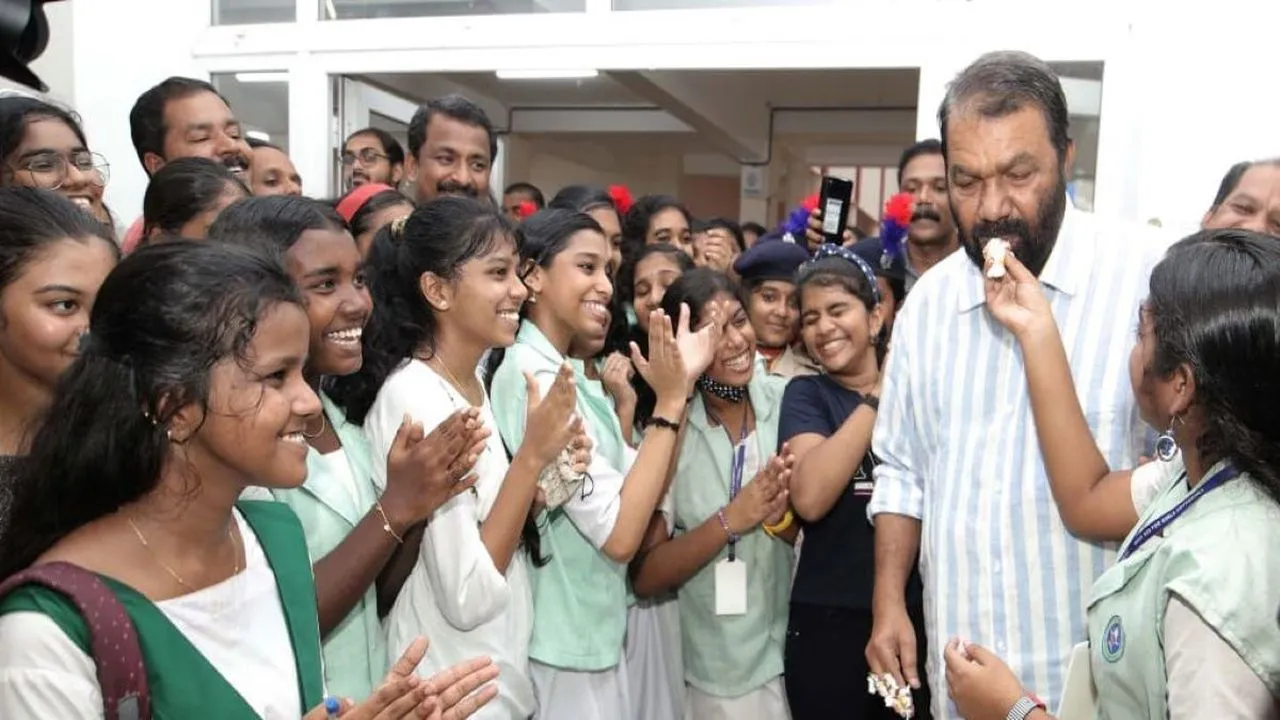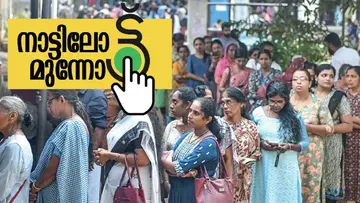Shifting the Tide: Kerala’s Approach to Student Mental Health Transformation


Anie Anna Thomas
Published on Feb 12, 2025, 04:09 PM | 5 min read
Thiruvananthapuram: On February 11, 2025, during the legislative assembly address, Kerala’s Minister for General Education, V. Sivankutty, highlighted the state's efforts to address mental health challenges among school students. By adopting a research-driven and methodical approach, Kerala has emerged as a pioneer in safeguarding the emotional and psychological well-being of its young learners. This initiative comes at a time when student mental health has become a pressing concern across India, with rising cases of stress, anxiety, and depression attributed to academic pressure, societal expectations, and limited access to mental health resources.
The Growing Mental Health Crisis Among Students
According to a 2022 report by the National Institute of Mental Health and Neurosciences (NIMHANS), approximately 14% of children and adolescents in India face mental health challenges. The competitive education system, coupled with societal and parental expectations, has created an environment where students often feel overwhelmed. The stigma surrounding mental health further compounds the issue, discouraging many from seeking help. Additionally, the rise of social media has introduced new challenges, such as cyber bullying and unrealistic comparisons, exacerbating emotional distress among students.
A 2023 report by the World Health Organization (WHO) reveals that more than one in three students globally report experiencing symptoms of anxiety and depression, reflecting the widespread impact of academic stress. Over the past decade, there has been a concerning rise in student suicides, with a 50% increase in male student suicides and a 61% increase in female student suicides, according to a 2024 report by the National Crime Records Bureau (NCRB). These troubling trends underscore the critical need to make student well-being a central focus of the educational experience.
Identifying students who are struggling internally remains one of the biggest challenges. A decline in academic performance, missed assignments, or increased absenteeism may signal emotional distress. Withdrawal from social interactions and a lack of interest in activities are common red flags. Physical manifestations of stress, such as headaches, disrupted sleep, and constant fatigue, often accompany mental health challenges. In some cases, students may resort to risky behaviors like substance abuse or self-harm as coping mechanisms. Other warning signs include indecisiveness, neglect of personal hygiene, or sudden emotional outbursts, each pointing to potential underlying psychological struggles.
Gender bias significantly worsens the mental health crisis. Female students often face unequal treatment and societal pressures, while male students are expected to conform to emotional stoicism. Transgender and non-binary students face significant discrimination and exclusion, deeply affecting their mental well-being. Addressing gender bias through awareness, protective policies, and equitable access to care is essential for creating an inclusive environment where all students can thrive.
Kerala’s Holistic Approach to Student Mental Health
Kerala has adopted a proactive and structured approach to address these challenges. Central to Kerala’s model are early intervention strategies, proactively identifying and addressing mental health issues at an early stage. Teacher empowerment plays a key role, with organized training programs that equip educators with the skills necessary to provide primary counseling and support. Additionally, Kerala places great emphasis on community involvement, promoting collaboration between parents, mental health professionals, and NGOs to ensure holistic care for students. Parents play an active role in this model, with regular engagement and support structures that help create a strong network of care for students at both home and school. Kerala’s localized initiatives, which offer tailored programs to meet the unique needs of students at various grade levels, ensure that no child is left behind.
The State Council of Educational Research and Training (SCERT) has conducted extensive studies to understand the root causes of mental health issues among students. One of the key initiatives is the establishment of ‘Sauhruda’ clubs at the higher secondary level, where teachers act as coordinators to provide psychological support to students. Counselors from the Department of Women and Child Development are also available to address mental health issues at the high school level.
Another notable program is ‘Kriyatmaka Kaumaram – Karuthum Karuthalum’ (Creative Adolescence – Strength and Care), targeting ninth-grade students. Through workshops and interactive sessions, the program helps students build emotional resilience and essential life skills. The state has also introduced ‘Nanma Pookkunna Naalekk’ (For a Blossoming Future) handbooks, which serve as practical guides for teachers to identify early signs of mental distress and provide primary counseling. Further strengthening its infrastructure, the state has established district-level psychological support centers in collaboration with mental health professionals and NGOs, ensuring a comprehensive approach to student well-being. Kerala’s Minister for General Education, V. Sivankutty
Kerala’s Minister for General Education, V. Sivankutty
National Initiatives and Challenges
While Kerala has made significant progress, the national scenario presents a mixed picture. Several initiatives, such as the Manodarpan Initiative and the National Tele-Mental Health Program, have been launched to support student mental health. However, their effectiveness has been limited due to challenges like poor coordination, lack of awareness, and inadequate resources. The CBSE’s Mental Health Curriculum and the National Education Policy (NEP) 2020 emphasize the need for wellness centers and trained counselors in schools, but implementation remains inconsistent, especially in rural areas.
Additionally, the stigma surrounding mental health continues to prevent many students and parents from seeking help, further hindering progress. Poor coordination among government agencies and educational institutions has also slowed down the rollout of key initiatives, while many schools, especially in rural regions, struggle with a lack of necessary resources to provide adequate support.
To effectively tackle the mental health crisis among students, a multifaceted approach is essential. Regular mental health screenings in schools can help detect early signs of distress and enable timely intervention. Comprehensive training programs for teachers and parents can enhance awareness and equip them with the skills to support students. Expanding digital resources, such as online counseling platforms, can make mental health services more accessible. Public awareness campaigns are crucial to reducing stigma and encouraging help-seeking behavior among students.
Addressing the reluctance to seek counseling is another critical step. To break down these barriers, educational institutions must create an environment that encourages mental health awareness through targeted campaigns, offer accessible and flexible counseling options, and build trust by employing culturally competent counselors.










0 comments